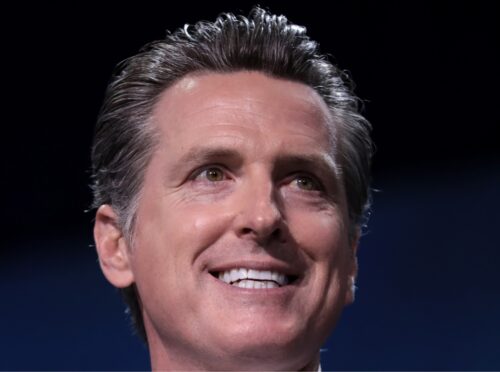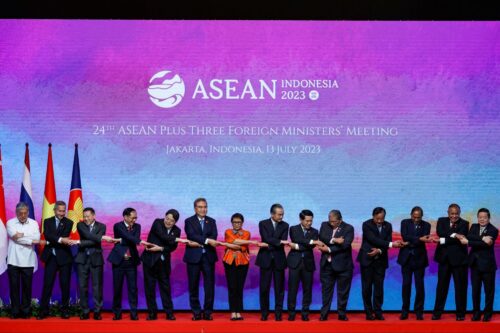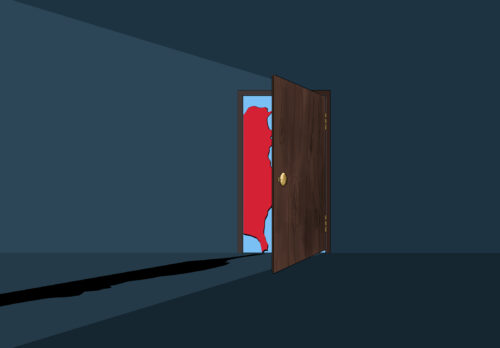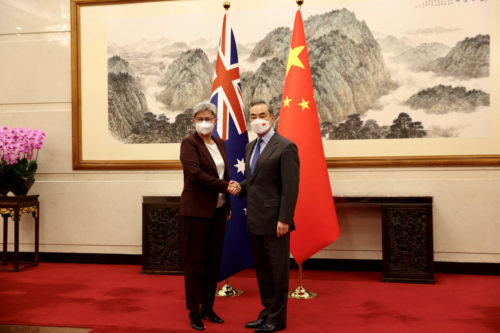China releases Australian journalist Cheng Lei from prison
After more than three years behind bars, during which Australia-China relations deteriorated significantly, Cheng’s release points to a thaw. But another Australian citizen, Yang Hengjun, is still behind bars in China on vague espionage charges after a closed-door trial.

Australian journalist Chéng Lěi 成蕾 was released today after more than three years of imprisonment in China on national security charges, and arrived back at Melbourne Airport, where she was met by Australian Foreign Minister Penny Wong.
Australian Prime Minister Anthony Albanese first announced Cheng’s release earlier today. He gave little further details on her release, but stated in a radio interview that Cheng served her sentence, with time served in detention being taken into account.
Cheng, 48, was born in Hunan Province, China, and emigrated to Australia as a child. She worked in China and Singapore as a financial analyst and journalist for CNBC between 2002 and 2012, and then became a business news anchor at Chinese state media television channel CGTN. In that role, she regularly conducted interviews with CEOs from around the world.
Cheng was detained in August 2020 for allegedly sharing state secrets with another country. She was tried in secret in March 2022, and Australian diplomats were denied entry. No evidence against her has been publicly released.
A short statement released today by China’s Ministry of Public Security (Chinese here) reported that Cheng was deported after serving her sentence of two years and 11 months. The statement read, “In May 2020, Cheng Lei was coaxed by a foreign organization to illegally provide state secrets obtained via her work to the foreign organization via her mobile phone, violating the confidentiality clause with her employer…Cheng Lei confessed the crime, pleaded guilty, and accepted the punishment.” After her trial, Cheng Lei did not appeal the sentence.
Prime Minister Albanese stated today that his government had repeatedly raised concerns with China about Cheng’s detention, and he previously stated that he had engaged directly with Chinese President Xí Jìnpíng 习近平 on the matter.
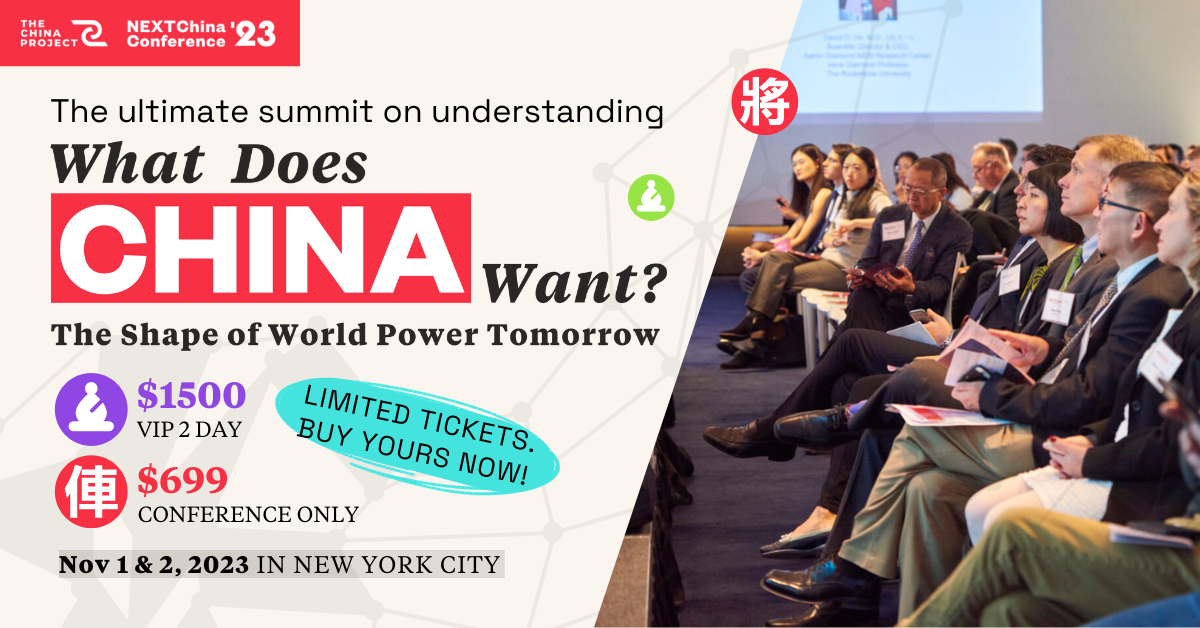
Prospects for improved relations
Cheng’s detention was at the center of a expansive diplomatic dispute between Canberra and Beijing, which has been accused of engaging in hostage diplomacy at times of political tension with foreign countries. Cheng’s supporters claimed that she was a victim of arbitrary detention. She endured months of solitary isolation before being moved to a prison that allowed her only 10 hours of sunlight a year.
Australia-China relations reached a low point in November 2019 when the Australian government barred Huawei from 5G projects in Australia, and sank further when Australia supported calls for an investigation into the origins of COVID-19 in May 2020. In retaliation, China introduced a swath of de facto sanctions against Australian products.
In September 2020, two Australian journalists in China, the Australian Broadcasting Corporation’s (ABC) Bill Birtles and the Australian Financial Review’s Michael Smith, left China amid a tense political standoff after being questioned by China’s Ministry of State Security.
Albanese is expected to visit China later this year, and there has been significant public pressure in Australia to secure Cheng’s release before any official visit to China.
James Laurenceson, director of the Australia-China Relations Institute at the University of Technology Sydney (UTS), told Reuters that Beijing was sending a “clear signal” with Cheng’s release that it wanted Albanese’s upcoming trip to be a success. “When the Albanese government came to power, the problems were in three baskets — no senior political dialogue, trade disruptions, and the detained Australians. We’ve now had progress across the board,” Laurenceson said.
Albanese is scheduled to travel to the U.S. on October 23 to attend a state dinner in his honor at the White House. He may also visit Beijing in October or November around the 50th anniversary of Australian Prime Minister Gough Whitlam’s historic visit to China between October 31 and November 4, 1973 — the first visit to the People’s Republic of China by an Australian prime minister.
China may have released Cheng now in an attempt to employ a charm offensive designed to mitigate the Australian government’s increasing closeness to the U.S.
Another detained Australian journalist, Yáng Héngjūn 杨恒均, has been held in China since January 2019. A verdict in Yang’s national security trial has been repeatedly delayed and there is as yet no sign of any prospect of his release. Yang, a former Chinese state official but an Australian citizen since 2002, was detained in Guangzhou in 2019 and charged with espionage. As with Cheng, no evidence to back these charges has been made public.
In August, in the first public statement from Cheng since her detention, she said: “In my cell, the sunlight shines through the window, but I can stand in it for only 10 hours a year.” Today, in a post on X, she wrote: “Tight hugs, teary screams, holding my kids in the spring sunshine. Trees shimmy from the breeze. I can see the entirety of the sky now! Thank you Aussies.”
Sinica Podcast: Cheng Lei: The detention and arrest of an Australian CGTN reporter.


